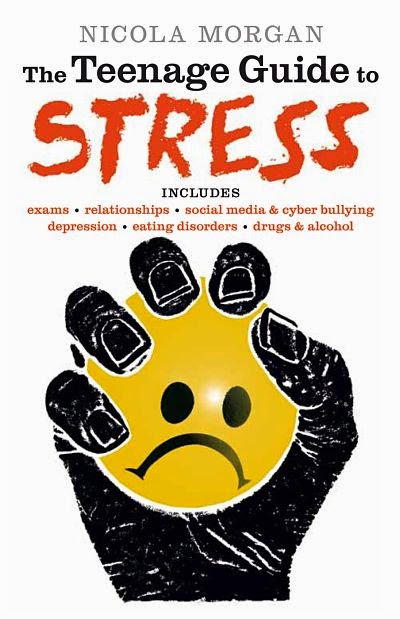Don't get me wrong: humour is an essential part of life and wellbeing. The ability to make an audience laugh is a laudable one. When kids come out of an author visit still laughing, the endorphins fizzing round their brains, it's a happy result indeed. It's visibly A Success.
But authors should not feel they have to "do funny" and I wouldn't like schools to fall into the trap of thinking that the only engaged audience is one falling off its chairs with laughter. I say this because I've seen children's authors recently worry that their events aren't "funny enough" and comparing themselves unfavourably with talented comic authors and speakers.
We should not forget that not everyone always wants to be made to laugh; not everyone laughs at the same things; and some people have different needs. I, for one, given the choice between an hour of laughter and an hour of having my heart and mind spun dizzy with new ideas or shocked into a new groove by fresh images and stories, would opt for dizzy or shocked. And I was always like that. Doesn't mean I don't have a sense of humour or like laughing, just that they are not at the top of my priority list. They are fairly high up it, but not at the top. I know I'm not alone.
If our books don't feature pants, slime or slapstick, our talks may not lend themselves to funny. I've written funny - and in my talks on Chicken Friend, yes, it was great to see the kids laughing when I chose the funny bits to read, though I preferred the more thoughtful bits, the bits where my main character really struggled with things in her world. But my YA novels are far from funny. A mastectomy without anaesthetic isn't funny; nor is being stalked; nor is mental illness or alcoholism. Even my talks on the teenage brain - which some adults might say, unjokingly, was a genuine comedic mine - only look for the occasional release of laughter. And that's usually when I quote Shakespeare.
She didn't want to laugh about her stress - even though laughing about serious things is no bad thing. She wanted her mind to be "settled". A book and a talk should do whatever they should do: inspire laughter or excitement or thoughts or emotions or resolution, whatever.
Today, I'm heading to Gordonstoun for two days of almost entirely unfunny events. However, I will at one point wear a knitted brain on my head (thanks, Cat!) and I can pretty much guarantee that people will laugh. That's fine. Especially since the brief laughter will flood their brains with chemicals which will make them better able to absorb the serious stuff.
But the value of an event is not measured in the decibels of laughter. If you set out to be funny, then it is, of course; if you set out to be thought-provoking, you might measure it in the silence and stillness. Or in the chatter afterwards. Or in a single question or email. Measure it how you like but don't be overwhelmed by the hegemony of humour.
So, to my fellow authors planning events: you do not have to wear your pants (or a knitted brain) on your head. Just wear your best ones.
The Teenage Guide to Stress is published on July 3rd by Walker Books. It's not funny so don't laugh.



